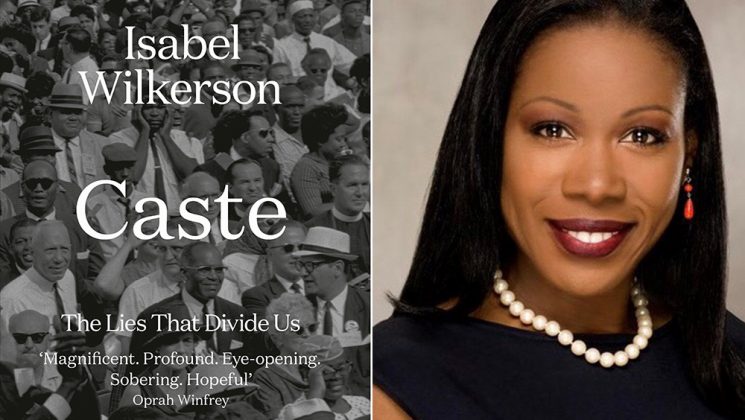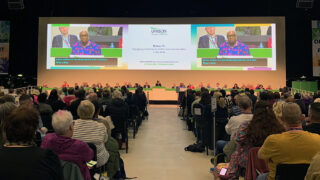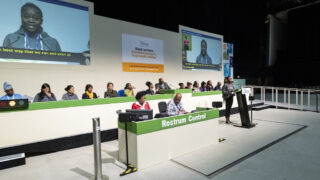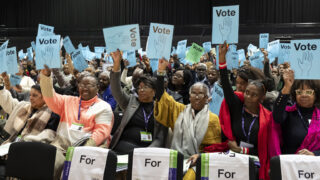Portrait ©Joe Henson
During Black History Month, booksellers have been putting together lists of recommended reading around the subject, from literary fiction to poetry, history to politics.
One of the most important books to feature this October has been Isabel Wilkerson’s Caste: The Lies That Divide Us, which landed in late summer.
The latest work from the American journalist and author – the first woman of African-American heritage to win the Pulitzer Prize in journalism, for her feature reporting of the midwestern floods in 1993 – is a follow-up to her acclaimed 2010 debut, The Warmth of Other Suns.
Here, she explores systems of exploitation, suppression and persecution – primarily focussing on the US, Nazi Germany and in India, with its caste system.
This might be the most important book I’ve ever chosen for my book club. Oprah Winfrey
Wilkerson is forensic in her examination of the roots of racism in America. And there’s something particularly chilling about her demonstration of how the architects of Nazism began by asking “how the Americans did it” when they wanted to institutionalise racism in Germany.
She recounts how Nazi bureaucrats met in Berlin in 1934 to “discuss the legal framework for an Aryan nation”. The Reich minister of justice introduced a memorandum “detailing the ministry’s investigation into how the United States managed its marginalised groups and guarded its ruling white citizenry”.
Earlier, in WWI, the German Society for Racial Hygiene had applauded the “dedication” of Americans in sponsoring research into eugenics.
A Japanese novelist once noted that, on paper anyway, it was a single apostrophe that stood between rejection and citizenship
There have been criticisms of the book. New York-based Indian writer and journalist Yashica Dutt notes that, while unpicking the complexities of America’s “racial caste system”, Wilkerson doesn’t go into great depth about the capitalist forces that are so important to defining the social order of the country.
Dutt also suggests that, given the global scope of the work – and its very title – the author has not given enough weight to the continuing misery inflicted on the Dalit (‘untouchables’) by the caste system in India.
But what Wilkerson has done by using a theory of caste is to examine her subject in terms that go beyond race or class, highlighting too the crassness and sheer absurdity of the labels that help facilitate repression.
As she writes at one point, of the prospects facing immigrants to the US: “A Japanese novelist once noted that, on paper anyway, it was a single apostrophe that stood between rejection and citizenship for a Japanese Ohara versus an Irish O’Hara”.
A world without caste would set everyone free
And if the book is primarily aimed at a US audience, then appearing as it does in the year of the death of George Floyd, the rise of the Black Lives Matter movement, the disproportionate impact of COVID-19 on Black people, and the sight and sound of a US president urging white supremacists to ‘stand by’, then such a work is clearly of vital importance to understanding how that country has arrived at this point in its history.
As Wilkerson concludes: “In a world without caste, instead of a false swagger over our own tribe or family or ascribed community, we could look upon all of humanity with wonderment … a world without caste would set everyone free”.
• Thanks to publisher Allen Lane, we have five copies of Caste: The Lies That Divide Us to give away to readers.
All you need to do is answer this question: Who was the first African-American winner of a Pulitzer Prize?
Send your answer by email, together with your name and address, to editorial@unison.co.uk, to arrive by noon on Friday 6 November.








